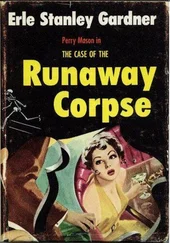‘Yes.’ I pause. He is still smiling. What does it mean? ‘High-functioning autism cannot occur in a person with an IQ below sixty-five-seventy. Those with Asperger’s have high IQs. That is why you cannot merge Asperger’s with autism.’
A beat passes. Then, ‘You think you are different?’
I lower my voice. ‘I know I am.’
‘Special?’
‘I cannot answer that.’
‘Above everyone else?’
‘I do not know what that means.’
He rests his cheek on his fist. ‘So you believe you are high-functioning?’
‘Yes. Of course.’
‘How do you know this?’
‘I have a photographic memory. I can fix things, reassemble electronic components at speed. I know numbers, can calculate vast equations, remember dates, decipher codes, detect patterns. I can-’
He holds up his hand. ‘And you think that is normal?’
A phone shrills somewhere from outside, one second, two seconds, then stops. ‘My father always said I could be myself.’
‘And was he right?’
‘Yes.’
‘And how is that working out for you, being yourself?’
I say nothing, disarmed by his question, by his frozen smile. I don’t feel safe.
‘Was being convicted of murder “being yourself”?’ he asks now. Then he suddenly sits forward, sets the Dictaphone on the table. ‘How about this: have you ever considered that your Asperger’s is not simply about nurture, or about how your father helped you, or about how you react to the environment around you?’
‘I don’t-’ I halt. Be careful , a voice in my head whispers. Be careful.
‘What about nature?’ Kurt is now saying. ‘What about the theory that what we are, what we do, is preprogrammed? That our DNA, ultimately, defines us? Maybe you have ended up where you are because of your genes. Maybe this-’ he gestures to the room ‘-was always going to happen to you.’
My chest tightens. Be careful. ‘What are you trying to say? What do you know?’
He remains quiet, still, like ice. I shiver. The clouds outside turn black, a droplet of rain taps the windowpane. ‘Okay,’ Kurt says finally, ‘we are going to move on now.’
He consults his file. I blink, press my palms together, barely breathe. What just happened? Does he know? Does he know what we found out?
‘You had a therapy session,’ Kurt says, voice clipped, businesslike, ‘with Dr Andersson on the twenty-third of May-the day you also met with your barrister for the first time. I want you to tell me about that.’
My shoulders tense. My friend, that day-I will never forget it, no matter what anyone tries to do to me. ‘That was the day that Pat-’
‘Yes, I know. I want you to tell me what happened.’
I try to remain steady, but even as I begin to speak, my hands shake a little.
Because all I can think is: why is this man here? And is he really a therapist?
‘It seems your face is all over the papers. Again,’ Dr Andersson says.
She talks sitting with her legs crossed, poised and ready for our therapy appointment. She slips one hand down to her shoe, flicks off the heel and rubs the arch of the foot. It is small, supple; I imagine what it would look like tied up in rope. Sighing, she pops her heel back and reaches forward to touch the pile of newspapers that fan out on the low table in front of her.
The air is hot and heavy. I don’t want to be here, not wanting to talk, not wanting to ransack my brain, to verbalise my emotions, to be exhausted by the sheer effort it all takes. I dab my forehead and scan the walls, focus on anything concrete to stave off my pulsing agitation.
‘You have put up your medical certificate,’ I say, leg jigging. ‘It is on the wall now.’ My eyes survey the floor. ‘And you have unpacked.’
She studies me. ‘I have.’ Her eyes take in the room. ‘It was a little sparse before, that’s for sure. Nice to have my things in here now. Feels better, less lonely.’ I recoil at the word ‘lonely’. Dr Andersson flicks open a file in front of her.
‘I have my first meeting with a new barrister today,’ I say, fixing my thoughts on facts, timings. ‘It is at eleven hundred hours. I cannot be late.’
‘Oh. Okay. That won’t be a problem.’ She clears her throat. ‘So, have you seen today’s papers?’
She is pointing to a low table to her right. I tuck a hair behind my ear and peer at the newspapers. I gasp at what stares back at me in colour, in plain black and white. ‘Mama,’ I say, laying my fingertips on the page, tracing her face, the contour of her slim neck. There are photographs of my mother, with me, old ones from graduation, of Ramon and…I stop, catch my breath, disabled by the image that swims in front of me. It is him. The nice one. The one that helped me. The one that I-
‘What is it like, seeing Father O’Donnell like this?’ Dr Andersson says, placing a periodical in my palms.
I blink. Still now, the sight of him makes me want to break down, to curl up, roll into a ball. ‘What do you mean?’ I manage to say.
‘The picture,’ she says, ‘of Father O’Donnell, the priest you killed.’
‘Murdered.’
A pause. ‘Yes. What do you think when you see him?’
But I can barely look at him, the image choking me.
‘Maria,’ she says after a moment, ‘it is normal for convicts to find it difficult to look at images of their victims. But I want you to try.’
‘But I didn’t…’ I waver, suddenly uncertain about what to say, do, about what she will believe. I inhale, try again. ‘He looks younger.’
She takes the newspaper from me and returns it to the table. I frown at my now empty hands.
‘We need to start our session,’ she says.
But instead, I pick up El País , its headline catching my eye, and read it aloud, a tremor trespassing my voice. ‘“Villanueva rushed to UK hospital”.’
‘Maria, can you put the paper down, we need to-’
‘“Yesterday”,’ I read, translating, ‘“Congresswoman Ines Villanueva Cortes was taken ill during a visit to Goldmouth Prison, London, where her daughter resides following a murder conviction.”’ Vomit shoots up. I swallow it down, glancing at Dr Andersson before continuing. ‘“Señora Villanueva is recovering in an unnamed hospital in London, but a spokesman says that she is suffering from a stomach bug and intends to return to full public office as soon as she is well. Villanueva is a long-time supporter of rightwing justice campaigns, and has acted as a defence lawyer on many high-profile cases involving Basque terrorist cell, Euskadi Ta Askatasuna (ETA).”’
I lower the paper. ‘My mother did not have a stomach bug. And Mama has never worked on ETA cases. Why are they lying?’
Dr Andersson picks up a pen, rolls her eyes. ‘Newspapers print incorrect details all the time, Maria. Maybe she has just commented on the cases? And someone must have released the illness part to the press.’ She clicks the pen. ‘Your mother probably doesn’t want the world to know her personal problems.’
I return to El País. Lies printed in black and white. Who told the reporter my mother had a stomach illness. Why? I place the paper on the table as Dr Andersson opens a small notepad. ‘What were you talking to my mother and brother about in the visiting area?’
‘I’m sorry?’ Her hand rests on the open note pages.
‘I saw you talking to Ramon as I was leaving the visiting area. What were you saying to him?’
She taps her pen on her lips then exhales. ‘I was checking on them.’
‘You talked to them for over two minutes.’ Then I make the connection. ‘Did you release the stomach bug story to the press?’
She places her pen in the crease of the notepad. ‘Maria, you cannot make false accusations like that. I simply wanted to ask how they were. It is important for me to understand how things are with the whole family, and…’ She lets out a breath. ‘Look, Maria, I think you are being a little paranoid.’
Читать дальше
Конец ознакомительного отрывка
Купить книгу












